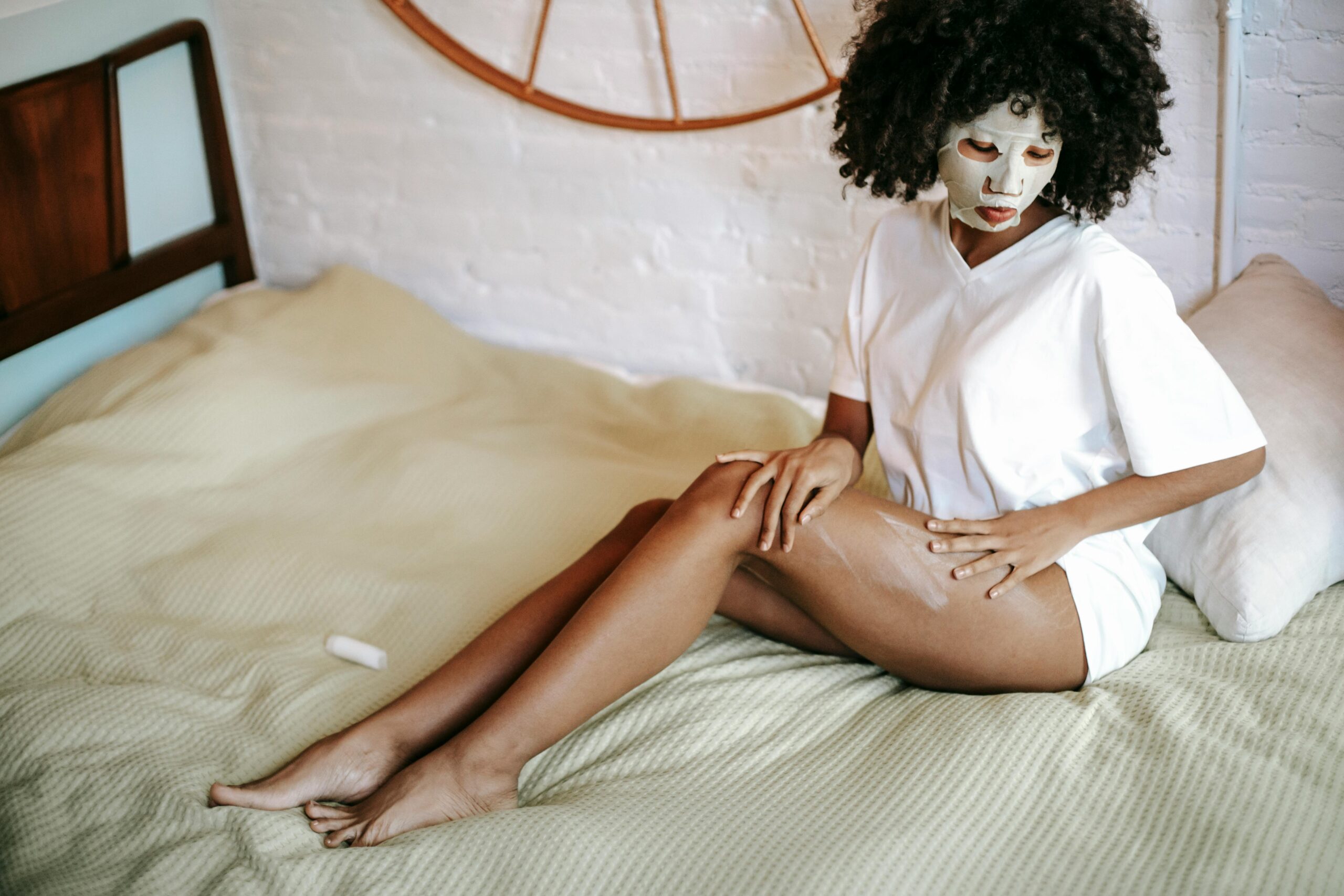Welcoming a new baby is a joyous, but overwhelming occasion for moms. Some parts of a woman’s body will start to experience changes after deliver a child. On top of emotional stress, issues, like hair loss and eczema, flare ups can begin to affect new moms. Symptoms, like dryness and discoloration of skin, from postpartum eczema are uncomfortable, but can be managed. The key is to avoid triggers.
What is Postpartum Eczema?
Medical experts define eczema as an inflammatory skin condition. It causes your skin to become dry and itchy. Eczema is one of the most common dermatological diagnoses of pregnancy, according to board-certified dermatologist Tara Akunna.
“Pregnancy can have both a positive or negative effect on any pre-existing condition,” Akunna told 21Ninety. “Many women with eczema can notice flares [of] their eczema during and even after pregnancy.”
If a woman has dealt with eczema before becoming pregnant, Akunna says she will typically see post-pregnancy flares in previously affected areas. It can also show up around different parts of the body including on the face and the insides of elbows or knees. According to Medical News Today, people who have given birth can even notice eczema around their genitals.
Symptoms and Causes
Eczema can show up in several forms on the body. The most common signs include the appearance of bumps, dryness and itching on the skin. You could also notice swelling or a rash forming. Skin could also become flaky or crusty. The cause of eczema could come from coming in contact with something that has irritated your skin.
“In most patients, eczema can have a fluctuating course that’s influenced by environment and internal triggers,” Akunna said.
Some of those triggers can include postpartum baby care and hormonal changes in a new mom’s body.
Does It Affect Breastfeeding?
It is possible for nursing moms to experience eczema around the nipple. However, it does not have to get in the way of a mother breastfeeding her baby.
“It’s important to continue to use [moisturizers] while breastfeeding, leaving at least 30 minutes between applying [a moisturizer] and breastfeeding,” Akunna told 21Ninety. “[Limit] the amount of times the area is being washed as over-cleansing can exacerbate eczema.”
In fact, using a small amount of breastmilk to rub over the irritated nipple could help keep it moisturized.
Prevention
According to Akunna, one of the biggest ways to prevent a postpartum eczema flare up is staying moisturized. Moisture must consistently return to your body. This is especially important if you are constantly washing your hands to take care of your child’s needs. Next, be mindful of other triggers that could bother your skin.
“It’s important to make sure to take lukewarm baths or showers, avoid harsh soaps and opt for gentle cleansers,” Akunna explained.
Avoid scratching as much as possible. This can cause bleeding and open sores, making it harder to treat the eczema.
Treatment
If the eczema is too hard to manage, reach out to your doctors for an examination and to get their choice of treatment. One treatment that Akunna says women can use during and after pregnancy is a topical steroid. She warns that women have to be mindful about how much of it used and where on the body it is being used.
“Besides gentle skin care and avoiding harsh soaps and fragrances, treatments are typically guided by the severity of the eczema,” Akunna said. “Only use potent topical steroids in small quantities. [Topical steroids] should not be used on areas like the face, under arms and groin without the guidance of a medical professional.”
Other treatment options you can ask your doctor about include oral medications, light therapy and biologic drugs.
